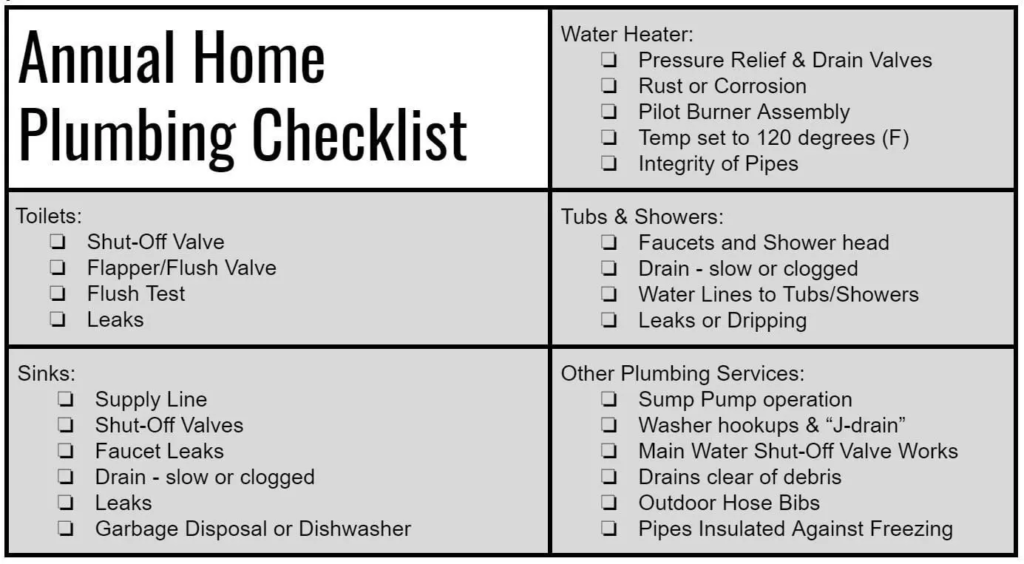
Conducting a thorough plumbing inspection helps maintain your home’s comfort and prevents costly damage down the road. Regular checks allow you to identify issues early, ensuring that your plumbing system remains in good working order. Here’s what every homeowner should know when inspecting their plumbing, with insights from Indianapolis plumbers.
1. Check for Leaks
Leaks are one of the most common plumbing issues and can occur in various areas, such as faucets, showerheads, toilets, or under sinks. Even small leaks can waste gallons of water and lead to expensive repairs if left untreated. Look for water stains on ceilings, walls, or floors, as these may indicate hidden leaks within your pipes. If you notice any dripping or signs of moisture, address the issue immediately to avoid further damage. Indianapolis plumbers recommend checking areas you don’t frequently access, such as under sinks or behind appliances, for early signs of trouble.
2. Inspect Pipes for Corrosion and Damage
Pipes naturally wear out over time, especially if they are made from older materials like galvanized steel. During your inspection, look for signs of rust, green discoloration, or mineral buildup on exposed pipes, as these indicate corrosion. Cracks, dents, or bulging areas may suggest the pipe is weakened and could burst under pressure. If your home’s plumbing system is older, it may be time to upgrade to more durable materials such as copper or PEX. Indianapolis plumbers can help assess whether a replacement is necessary to prevent future issues.
3. Test the Water Pressure
Water pressure that is too high or too low can signal underlying plumbing issues. Use a pressure gauge to measure the water pressure at a faucet; it should ideally fall between 40 and 60 psi. Low water pressure might indicate a clog, leak, or a problem with the municipal water supply. On the other hand, high water pressure can put stress on pipes and appliances, increasing the risk of leaks and bursts. If your pressure readings are outside the recommended range, Indianapolis plumbers can install a pressure regulator or investigate further to ensure your system is functioning correctly.
4. Inspect Toilets and Faucets for Functionality
Toilets and faucets are used frequently, making them susceptible to wear and tear. During the inspection, flush each toilet to ensure they drain and refill correctly. If the toilet continues to run after flushing, it could indicate a faulty flapper or valve, which wastes water and should be replaced. Similarly, turn on all faucets to check for steady water flow and ensure there are no drips when turned off. Indianapolis plumbers recommend replacing old washers and seals promptly to avoid leaks that can worsen over time.
5. Check for Drainage Issues
Slow drains are often a sign of blockages or buildup in your pipes. Run water through sinks, showers, and bathtubs to see how quickly they drain. If the water pools or drains slowly, there may be debris, grease, or soap scum clogging the pipes. In severe cases, tree roots could have infiltrated underground pipes, causing serious blockages. While minor clogs can often be resolved with natural remedies like baking soda and vinegar, persistent drainage issues may require professional hydro jetting, a service offered by many Indianapolis plumbers to clear stubborn blockages.
6. Inspect Your Water Heater
Your water heater plays a critical role in providing hot water for everyday use, so it’s essential to ensure it is functioning correctly. Check the temperature setting, which should be around 120°F to prevent scalding and reduce energy consumption. Inspect the tank for signs of rust or leaks, and listen for any unusual noises, such as banging or popping, which could indicate sediment buildup inside the tank. Flushing the water heater annually can help remove sediment and improve efficiency. If you’re unsure about performing this maintenance yourself, Indianapolis plumbers can handle it for you.
7. Examine Outdoor Plumbing Components
Outdoor plumbing elements, such as hose bibs, irrigation systems, and sewer lines, also need attention during your inspection. Make sure outdoor faucets are not leaking and that your irrigation system is working correctly. If your home has a sewer cleanout valve, inspect it to ensure there are no signs of backups or foul odors, which could indicate a clogged sewer line. Indianapolis plumbers recommend scheduling a professional sewer line inspection if you suspect any issues, as clogs in the main line can lead to significant problems inside your home.
8. Prepare for Seasonal Changes
Seasonal changes can impact your plumbing system, especially in colder climates where pipes are at risk of freezing. Before winter, insulate exposed pipes and disconnect outdoor hoses to prevent freezing. Inspect your plumbing system for any areas that may need extra protection, such as crawl spaces or unheated basements. Preparing your pipes for winter helps avoid burst pipes and expensive water damage. Indianapolis plumbers can assist with winterizing your plumbing system if needed.
Conclusion
A comprehensive plumbing inspection ensures your home’s plumbing system stays in top shape, minimizing the risk of costly repairs and water damage. By regularly checking for leaks, testing water pressure, inspecting pipes, and preparing for seasonal changes, you can keep your plumbing running smoothly all year round. If you encounter issues beyond your expertise, don’t hesitate to contact Duty Calls Plumbing for expert advice and assistance.
